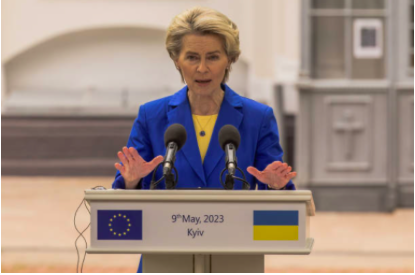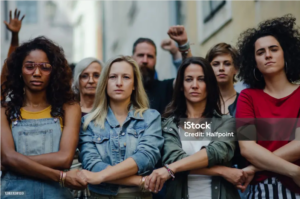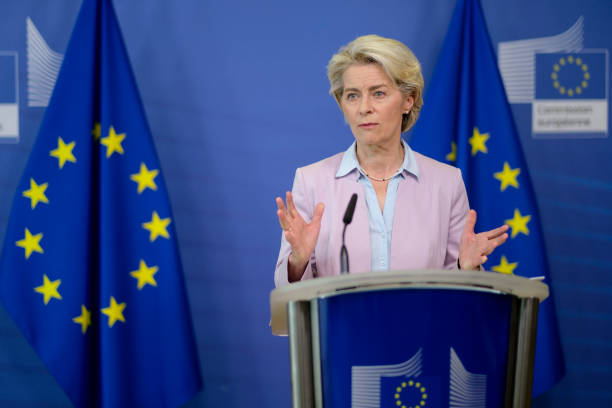Assessment of Ursula von der Leyen’s mandate
During her mandate, Ursula von der Leyen faced unprecedented challenges, including managing the health crisis caused by the COVID-19 pandemic. Under her leadership, the European Commission implemented the “Next Generation EU” . It is a recovery program aimed at supporting the economies of member states affected by the crisis. Additionally, she played a key role in coordinating efforts to ensure the supply of COVID-19 vaccines for the entire European Union.
In addition to the health crisis, Ursula von der Leyen has had to manage other major challenges. These challenges include Brexit, geopolitical tensions with Russia and China, the Ukrainian conflict and issues related to climate change.
Finally, she pledged to make Europe a world leader in the fight against global warming. Therefore, she proposed the European Green Deal. It is an ambitious plan to reduce greenhouse gas emissions and promote the transition to a more sustainable economy.

However, Ursula von der Leyen’s tenure has not been without controversy. She has been criticised for her management of the migrant crisis on the border between Greece and Turkey. Other critics mention her communication strategy sometimes considered unclear and ineffective. Finally, some experts believe that she has failed to establish real cooperation between the different EU actors. Indeed, this has harmed the implementation of EU’s policies.
A second term?
As her current mandate draws to an end, speculation is rife about a potential new candidacy. Her crisis management and her vision for the future of Europe have provoked diverse reactions within Member States and the European Parliament.
Some welcome her leadership and her commitment to a more united and resilient Europe, while others criticize her management of certain crises and her political proposals. The final decision on her candidacy will depend not only on her personal will, but also on the political support she is able to muster within the European institutions and Member States.
On Monday February 19, Von der Leyen said “I am making a conscious and considered decision today: I wish to run for a second term” and affirmed “We must continue to defend ourselves against those who divide us from the “inside and from outside, we must strengthen ourselves (…), this is the task that I have set for myself.”
In conclusion, Ursula von der Leyen’s mandate as head of the European Commission was marked by major challenges and ambitious initiatives. As her first term draws to a close, Ursula von der Leyen’s political future remains uncertain. However, her new candidacy for a second term is attracting keen interest within the European Union.










